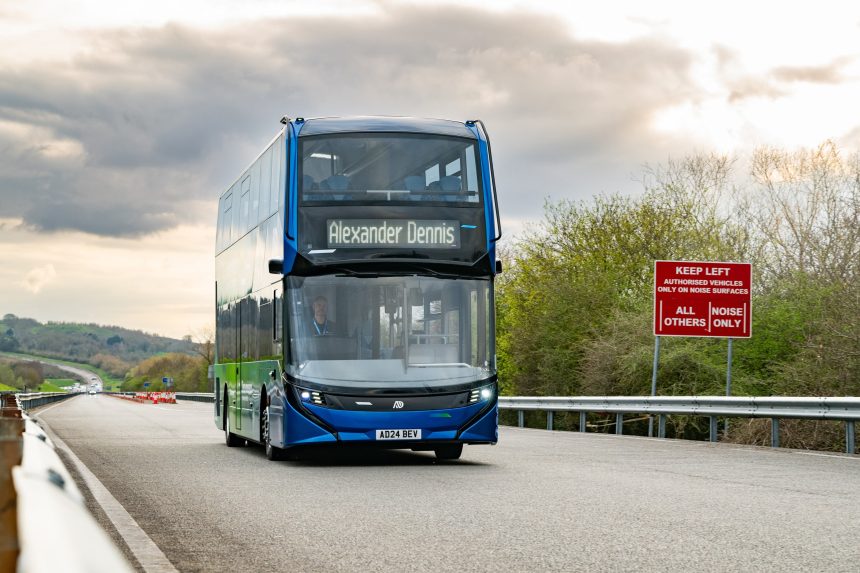The recent announcement by Alexander Dennis regarding the potential redundancy of up to 160 roles is a poignant reminder of the pressures facing domestic coach and bus manufacturing, and the difficulties that legacy builders have when faced with a country that produces over 75% of global electric vehicle (EV) capacity at prices 20% lower.
While the company’s concerns about current policy favouring overseas competitors warrants attention, a solution must be approached with caution, particularly when tariffs are frequently suggested as the remedy.
It only takes a small logical leap to guess which ‘overseas competitors’ pose a risk to domestic manufacturing. This year, China’s EV industry was hit with unilateral trade restrictions in Canada, the USA and the European Union, three major export markets. China reacted not just with anti-dumping actions of its own, but raised a dispute at the World Trade Organization.
The allure of imposing higher tariffs on imported EV buses may seen like an immediate fix to a total monopoly by Chinese manufacturers (and what happens then?), but what about the potential complexities involved? Increased prices for consumers; a short-term hindering of the broader adoption of zero-emission vehicles (potentially stalling the green transition that has dominated recent dialogue); and a false sense of security for local manufacturers without addressing underlying issues of competitiveness and innovation? On that last note, what help will tariffs be when Chinese companies establish factories in Europe? (BYD and CATL are progressing rapidly there).
The real challenge lies in enhancing supply chains and manufacturing capacity to ensure that British and European built coaches and buses can stand shoulder to shoulder with international counterparts. For some, tariffs can play a role, but with a caveat.
Transport and Environment, one of the leading advocacy groups for decarbonisation in Europe, recognises that decarbonisation does not mean de-industrialisation. It suggests that the UK should adjust upwards its EV import tariffs to make imported Chinese EVs slightly more expensive than domestic equivalents (while raising revenue that can be reinvested into scaling domestic supply). It must also agree a European battery alliance with the EU for a tariff-free EV supply chain.
Tariffs, therefore, should rather be seen as a strategic investment and a protective measure, one that can help ramp up production capacities, build partnerships, and encourage stronger targets for local battery manufacturing. A collaborative approach can pave the way for a competitive sector that prioritises sustainable practices and domestic jobs without sacrificing consumer access to affordable electric vehicles (which is what we should all be striving for, surely?)
But collaboration between manufacturers, suppliers, and of course government, is the vital component. This can be something of a sore point for those who had every confidence 10 years ago that it was possible. A long recovery awaits: Reminder that post-Brexit, EU exports dropped by £27 billion, according to one CEO.
The risks faced by Alexander Dennis are, as we have been reminded here, genuine, and pressing, and should help focus a shift towards improving a European supply chain.
By all means, a higher tariff can assist; but it has to be part of a broader strategy, not a retreat behind trade barriers designed to shield legacy manufacturers that, in the words of T and E, risks a trade war.



























